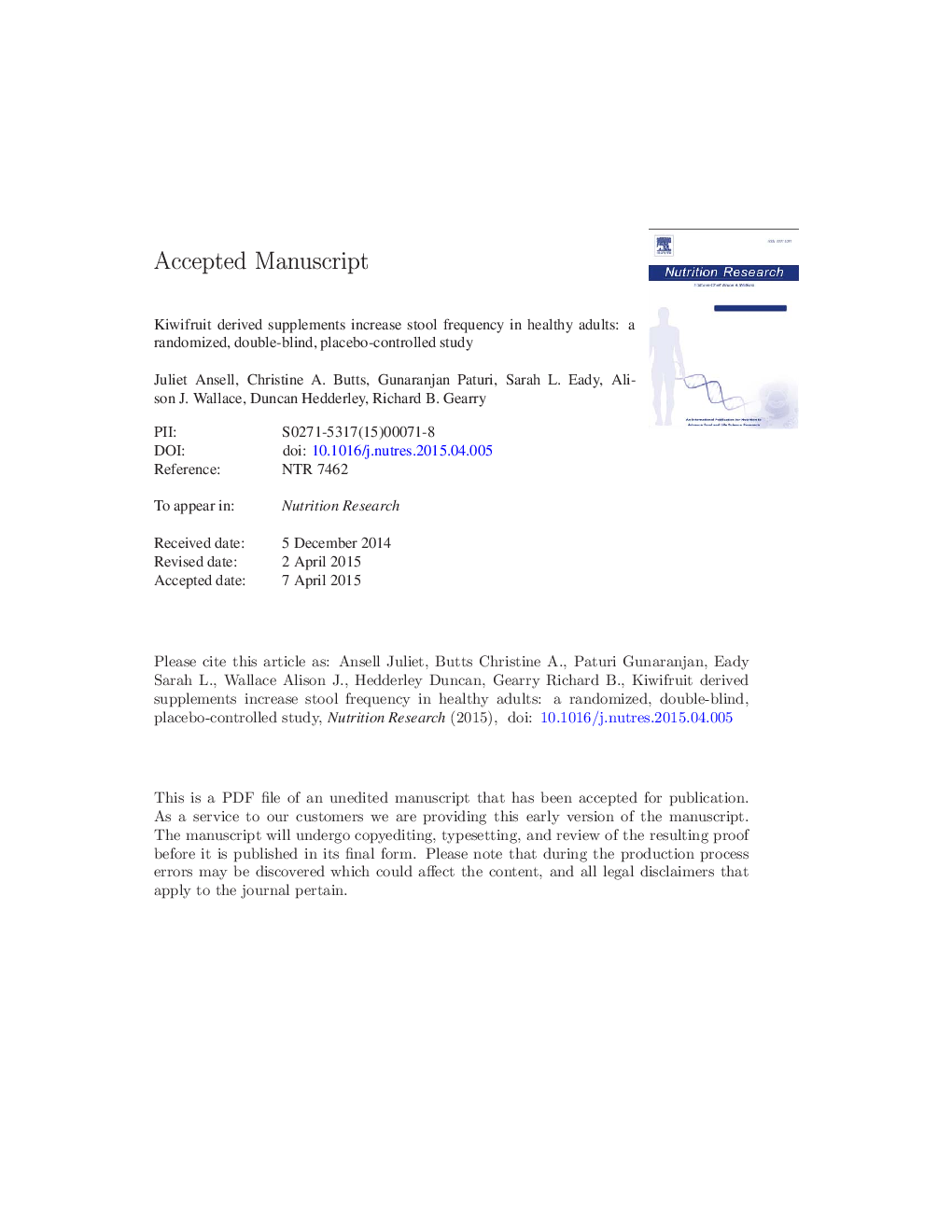| Article ID | Journal | Published Year | Pages | File Type |
|---|---|---|---|---|
| 5904398 | Nutrition Research | 2015 | 19 Pages |
Abstract
The worldwide growth in the incidence of gastrointestinal disorders has created an immediate need to identify safe and effective interventions. In this randomized, double-blind, placebo-controlled study, we examined the effects of Actazin and Gold, kiwifruit-derived nutritional ingredients, on stool frequency, stool form, and gastrointestinal comfort in healthy and functionally constipated (Rome III criteria for C3 functional constipation) individuals. Using a crossover design, all participants consumed all 4 dietary interventions (Placebo, Actazin low dose [Actazin-L] [600 mg/day], Actazin high dose [Actazin-H] [2400 mg/day], and Gold [2400 mg/day]). Each intervention was taken for 28 days followed by a 14-day washout period between interventions. Participants recorded their daily bowel movements and well-being parameters in daily questionnaires. In the healthy cohort (n = 19), the Actazin-H (P = .014) and Gold (P = .009) interventions significantly increased the mean daily bowel movements compared with the washout. No significant differences were observed in stool form as determined by use of the Bristol stool scale. In a subgroup analysis of responders in the healthy cohort, Actazin-L (P = .005), Actazin-H (P < .001), and Gold (P = .001) consumption significantly increased the number of daily bowel movements by greater than 1 bowel movement per week. In the functionally constipated cohort (n = 9), there were no significant differences between interventions for bowel movements and the Bristol stool scale values or in the subsequent subgroup analysis of responders. This study demonstrated that Actazin and Gold produced clinically meaningful increases in bowel movements in healthy individuals.
Related Topics
Life Sciences
Biochemistry, Genetics and Molecular Biology
Endocrinology
Authors
Juliet Ansell, Christine A. Butts, Gunaranjan Paturi, Sarah L. Eady, Alison J. Wallace, Duncan Hedderley, Richard B. Gearry,
